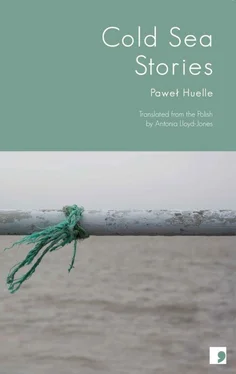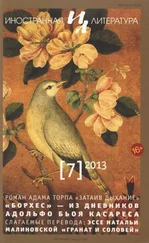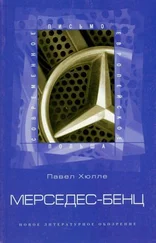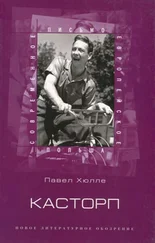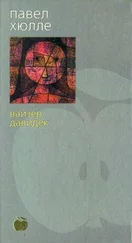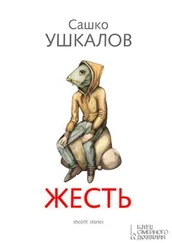She wanted to cry, but not a single tear came flowing down her cheek. She wanted to scream out all her pain, but not a single word, not even the simplest, could break free of her lips.
By the light of the moon, she seemed to see the lorries driving noiselessly up to the chapel again, and just as on that day, when she was coming back from the sea, she stopped at the edge of the forest. Once again, she seemed to see the people in uniforms, only waiting for Harmensoon. Finally he appeared, and just as before, he was carrying some charters, folios and parchments, of which the oldest, set in wooden frames, bore royal seals. He went up to the officer, waving the wad of documents under his nose, and said at the top of his voice that this was a violation of the law. A gentle murmur ran through the crowd, and just as before, the officer crushed his cigarette-end under his heel, then gave a signal. Obeying the armed men, they boarded the lorries. Harmensoon raised his voice, and just as before, tried to persuade the officer that the Russian villages of Molochno and Chortytsa had long since ceased to exist, that their ancestors had travelled there voluntarily, and that the land on which they were now standing had never known violence, for the followers of the Lord never carried or used weapons, just as they never swore oaths. Just as before, she saw the lorries driving away, one after the other, Harmensoon went on talking, the officer kept nodding his head and clapping Harmensoon on the back, and just as before, once the transport had disappeared around the corner, the officer gave a signal, the soldiers fired once, and again, Harmensoon fell, the officer raked up the pile of documents and parchments with his boot, set it on fire with a petrol lighter, took a good look all around, gave a signal, and just as before, drove away in a small open car, escorted by two motorcycles, overtaking a line of cattle being herded down the dusty road by guards on foot.
Just as before, she pressed her face to the smooth, moss-coated beech bark. But this time she couldn’t hear the dogs barking like mad at the cattle herders until rifle shots silenced them for ever. Now she was afraid of ghosts, not people. Maybe that was why, when she saw a light in the window of her house, she went inside at a confident, rapid pace . She knew he would be waiting for her. She knew he would talk. She turned down the wick in the lamp, which was sending up too much smoke, and sat down facing him. He said his name was Jakub and he had seen hell. He said she shouldn’t be afraid, because he, Jakub, son of Aron, was going to build a boat with Willman’s help, and they would sail far away, to the other side of the sea, where people did not throw other people into ovens or onto lorries. She wrote on a piece of paper that there were boats on the canal. He said those boats were too small and too old for such a journey, and that Willman thought the same. She quickly added that she wouldn’t sail anywhere, because she was waiting here for her father, for Rachela, for the Helkes and all the others. He said they would never return. She wrote that they would return. He asked how she knew they would return. She wrote that she knew it from Harmensoon. As he raised his eyes from the sentence he had just read to look into her face, bathed in the twinkling light of the oil lamp, she saw alarm and anxiety in them.
‘But that Harmensoon fellow is dead,’ he said. ‘Willman told me you buried him.’
For a while she hesitated over the paper, until finally she wrote: ‘I am afraid, because one day, when Ludwig comes here again…’
He asked who Ludwig was. But she pushed away the notebook full of sums and hid her face in her hands. He started saying gentle, tender words to her, but he wasn’t sure if she could hear him. She was emitting quiet, muffled sobs, like the whimpering of a little dog. She didn’t turn away when he laid his hand on her head. It was only when his fingers removed her linen cap and instinctively sank into her hair the colour of bright, burning copper that, without looking up, she raised a hand, found his touch between her tortoiseshell hairpin and her bared nape, then made him let go and sit up straight again.
‘There’s little time,’ he said. ‘We have to make great haste. Do you know,’ he added in parting, ‘why they didn’t burn your houses down?’
IV
Willman was hungry for his stories. In Andress’ boatyard, where they now worked from dawn to dusk, Jakub spread images before his eyes that were enough to make his head spin. Often, without putting down his plane or axe, Willman would interrupt him to demand an explanation. What is an overture? Can the baton be made of yew, or is it better to have it carved from a pine twig? Is the orchestra pit, where Jakub used to sit each evening, something very deep? What does anyone need the conductor for, if the musicians already know what they are meant to play? Do they sing psalms on stage? What is the second violin?
Golden coils of wood shavings flowed to Jakub’s feet one after another, while his voice rose to the rafters of the shed, ringing with Almaviva’s laughter, Don Jose’s lament or Faust’s curses. Willman particularly loved the stories where someone dropped dead, and love – just like death – was draped in a robe of destiny.
‘And did all that really happen?’ he asked every single time.
Clearly and patiently, Jakub explained what a libretto was, a part and a score. Willman kept nodding his head, but he suspected that Jakub did not want to reveal the entire truth. How could you present something that had never actually happened anywhere? And to people who sat on elegant chairs and armchairs each evening? Why should the musicians and singers want to deceive them?
Jakub, on the other hand, was not expecting to hear any stories. The questions he asked rarely, and as if by chance, were aimed at determining essential facts. Willman did not know if patrol boats ever appeared at the mouth of the river. He had no idea in which communities deportation had taken place. But he did know that in Tiegenhagen, where the elders were the brothers de Veer, Jan and Piotr, where Bestvater had put up electricity posts and where they wore waistcoats with buttons, they had decided that the men could swear oaths, put on uniforms and carry weapons, but only when people from the city demanded it of them.
‘That was long ago,’ pronounced Willman after some thought, ‘a year before war was declared.’
Jakub also wanted to know whether any of the locals had any sort of map, best of all the kind used to navigate on the sea, but Willman couldn’t remember anything like that. If they ever did go sailing, it was only to the sandbar, and if someone, such as the van Dorns, made the journey to the city by water, it was always in daylight, without losing sight of the shore.
Meanwhile their work was going faster than expected, and somewhere near the end of August, when the tails of falling stars flared in the night sky, the hull of the ship was ready. They painted it with pitch and launched it onto the dark depths of the canal, full of weeds and algae.
‘I thought you were only good at talking,’ said Willman at the time, ‘but you have strong, skilful hands.’
Jakub could not hide his satisfaction, but the funny, humorous remark he wanted to say in reply hung on his lips like a fruit killed off by hoarfrost, when at once Willman added:
‘But do you have to keep going to see her?’
‘What do you mean?’ he asked, and at once, almost instantly regretted the question, because he realised that Willman’s gaze, the cold look in his light blue eyes, did not just follow him here, while building the boat, but wandered after him each evening when, work-weary, he said: ‘Until tomorrow,’ and set off down the canal path, amid an oppressive odour of stagnant water, sweet flag and water lilies; at three oak trees he turned and then, following the sandy road, at the very end of the dunes and the cemetery he came to the van Dorns’ house, which for a brief while had been his, Jakub’s house, though it wasn’t now, because he didn’t go up the creaking porch steps, but walked on, past the small, silent windows of the chapel, all the way to her doorstep, where Willman’s gaze did not stop at the peeling paint on the door frame, but continued to delve, through the walls, the whispers and silences, as if he had a right to do so, granted him by the widower or by some blood relationship unknown to Jakub.
Читать дальше
